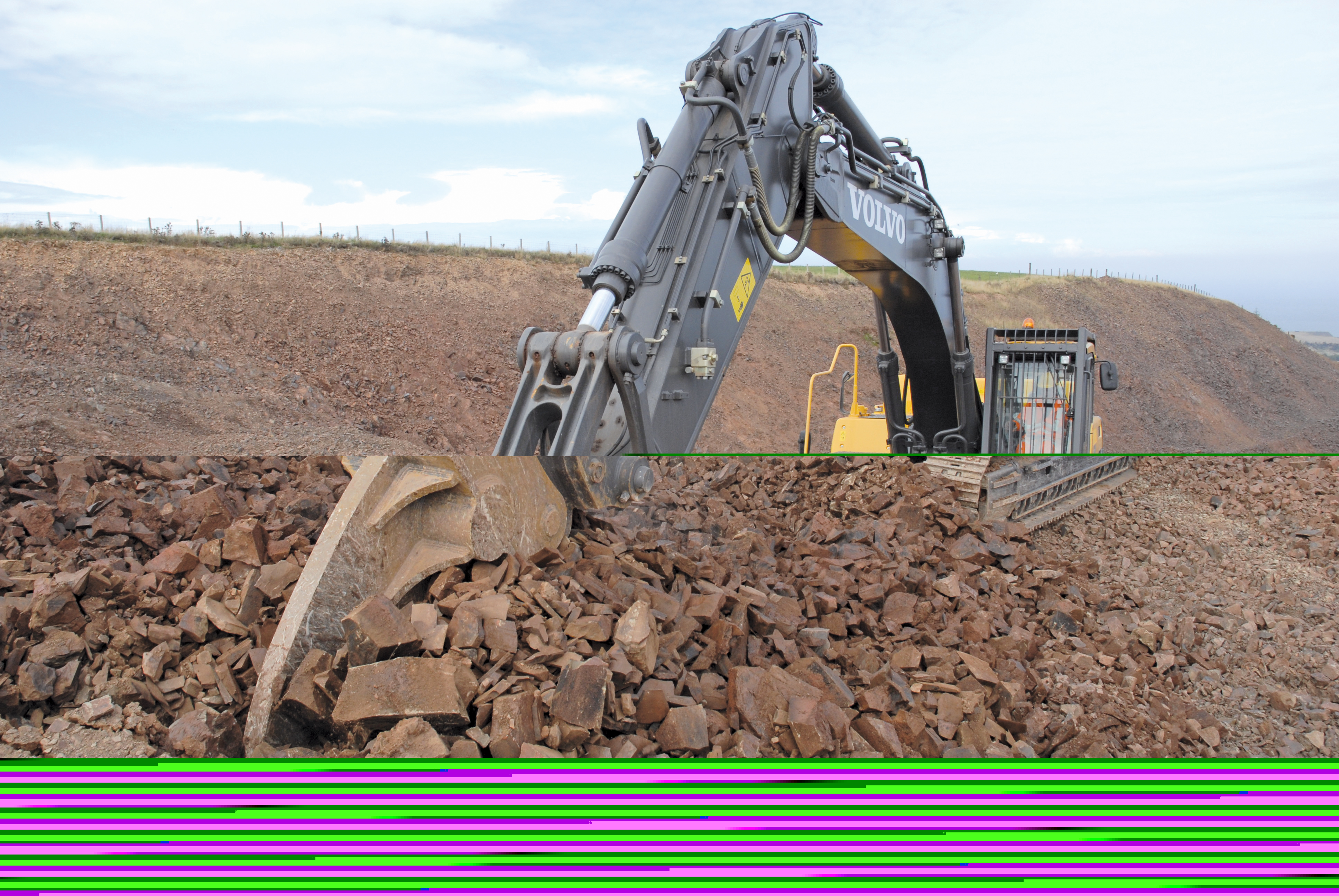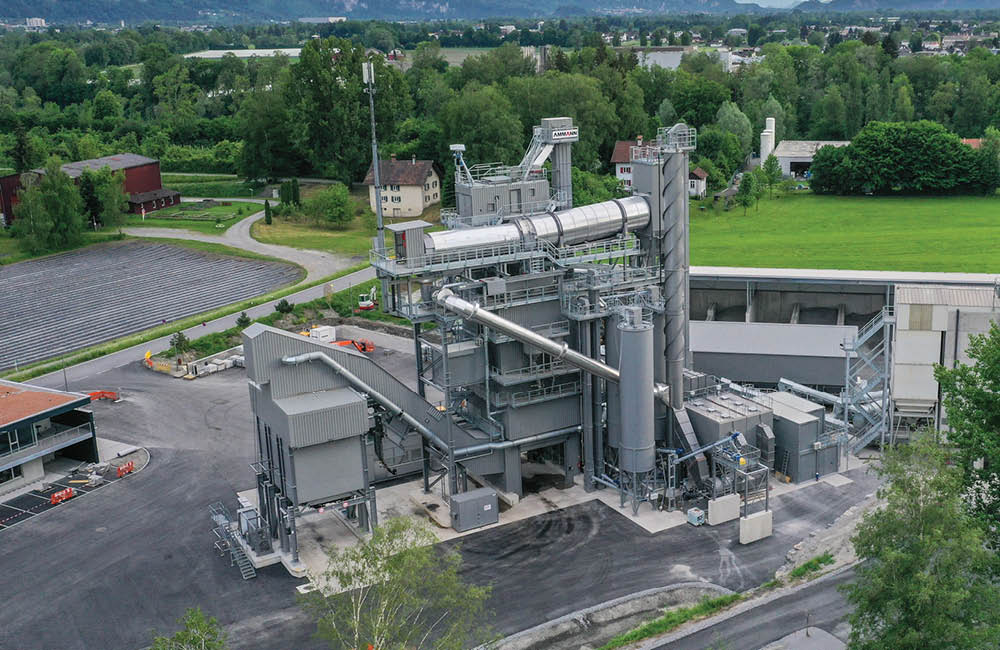
Family-run extraction business Kinegar Quarries of Cockburnspath near Dunbar, Scotland, has opted for a new
Continuing a 25-year association with Volvo Construction Equipment products, the machine replaces an Akerman EC300, which was built in 1996 and has clocked up 12,600 hours.
The EC380D is in charge of ripping greywacke sandstone from benches at Glenfin Quarry. The material has an exceptionally high PSV value of around 72 which, when crushed down to 10mm and 6mm product, is ideally suited for road surfacing with excellent anti-skid properties.
Material ripped by the 38tonne excavator, equipped with a hydraulic quick-hitch and a bespoke ripper tooth, is loaded onto a resident Volvo A25D dump truck which hauls it to the primary crusher.
“We have tended to favour Volvo products from the outset when we bought our first Volvo L120 at the end of the eighties,” says co-director Stephen Findlay who with his brother Arnot runs the business.
The L120 is still used daily having clocked up 28,000 hours, as is a Volvo L120C, bought at the same time as the old Akerman. Both shovels have replacement engines and transmissions.
At the heart of the new EC380D is a Stage IIIB V-Act 13litre engine, ideally matched to its automatic sensing mode hydraulic system, and the machine features an automatic idling system to reduce engine speed when the levers and pedals are not activated, aiding fuel efficiency and lowering external noise. When only a single function is being used, the two-pump hydraulics system combines the flow of both pumps for quick cycle times and greater productivity. It can also prioritise flow according to the work being done (for example to the boom for faster raising when loading or in deep excavations or to the arm during levelling or swing during large slewing angles).
The EC380D’s breakout and tearout forces are a maximum of 242.7kN and 219.1kN respectively.














